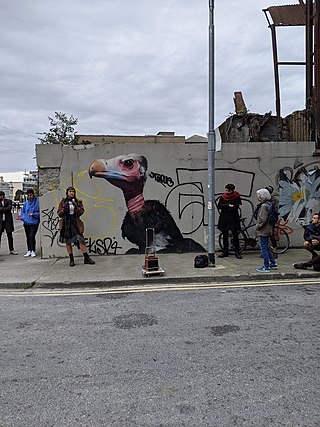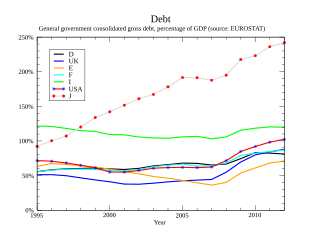Related Research Articles

Investment banking is an advisory-based financial service for institutional investors, corporations, governments, and similar clients. Traditionally associated with corporate finance, such a bank might assist in raising financial capital by underwriting or acting as the client's agent in the issuance of debt or equity securities. An investment bank may also assist companies involved in mergers and acquisitions (M&A) and provide ancillary services such as market making, trading of derivatives and equity securities, FICC services or research. Most investment banks maintain prime brokerage and asset management departments in conjunction with their investment research businesses. As an industry, it is broken up into the Bulge Bracket, Middle Market, and boutique market.
Cleary Gottlieb Steen & Hamilton LLP, formerly Cleary, Gottlieb, Friendly & Cox and Cleary, Gottlieb, Friendly, Steen & Hamilton, is an American multinational law firm headquartered at One Liberty Plaza in New York City. Known as a white shoe law firm, Cleary employs over 1,200 lawyers worldwide.
Distressed securities are securities over companies or government entities that are experiencing financial or operational distress, default, or are under bankruptcy. As far as debt securities, this is called distressed debt. Purchasing or holding such distressed-debt creates significant risk due to the possibility that bankruptcy may render such securities worthless.

A vulture fund is a hedge fund, private-equity fund or distressed debt fund, that invests in debt considered to be very weak or in default, known as distressed securities. Investors in the fund profit by buying debt at a discounted price on a secondary market and then using numerous methods to subsequently sell the debt for a larger amount than the purchasing price. Debtors include companies, countries, and individuals.

The Argentine debt restructuring is a process of debt restructuring by Argentina that began on January 14, 2005, and allowed it to resume payment on 76% of the US$82 billion in sovereign bonds that defaulted in 2001 at the depth of the worst economic crisis in the nation's history. A second debt restructuring in 2010 brought the percentage of bonds under some form of repayment to 93%, though ongoing disputes with holdouts remained. Bondholders who participated in the restructuring settled for repayments of around 30% of face value and deferred payment terms, as well as warrants that paid investors based on annual economic growth as part of the same offer, and began to be paid punctually; the value of their nearly worthless bonds also began to rise. The remaining 7% of bondholders were later repaid 25% less than they were demanding, after centre-right and US-aligned leader Mauricio Macri came to power in 2015.

The Latin American debt crisis was a financial crisis that originated in the early 1980s, often known as La Década Perdida, when Latin American countries reached a point where their foreign debt exceeded their earning power, and they could not repay it.
A primary dealer is a firm that buys government securities directly from a government, with the intention of reselling them to others, thus acting as a market maker of government securities. The government may regulate the behaviour and number of its primary dealers and impose conditions of entry. Some governments sell their securities only to primary dealers; some sell them to others as well. Governments that use primary dealers include Australia, Belgium, Brazil, Canada, China, France, Hong Kong, India, Ireland, Hungary, Italy, Japan, Pakistan, Singapore, Spain, Sweden, the United Kingdom, and the United States.
David Martínez Guzmán is a Mexican investor who is the founder and managing partner of Fintech Advisory. This firm specializes in corporate and sovereign debt. Fintech Advisory has offices in London and New York City, and he currently divides his time between those two cities.
Dennis P. Lockhart is an American economist. He was the 14th President and CEO of the Federal Reserve Bank of Atlanta, serving from March 1, 2007, through February 28, 2017.

Guillermo Antonio Calvo is an Argentine-American economist who is director of Columbia University's mid-career Program in Economic Policy Management in their School of International and Public Affairs (SIPA).
A sovereign default is the failure or refusal of the government of a sovereign state to pay back its debt in full when due. Cessation of due payments may either be accompanied by that government's formal declaration that it will not pay its debts (repudiation), or it may be unannounced. A credit rating agency will take into account in its gradings capital, interest, extraneous and procedural defaults, and failures to abide by the terms of bonds or other debt instruments.

A boutique investment bank is an investment bank that specializes in at least one aspect of investment banking, generally corporate finance, although some banks' strengths are retail in nature, such as Charles Schwab. Of those involved in corporate finance, capital raising, mergers and acquisitions and restructuring and reorganizations are their primary activities. Boutiques usually provide advisory and consulting services, but lack capacity to provide funding. After the Gramm–Leach–Bliley Act, investment banks have either had a retail deposit base or have had funding from overseas owners or from Wealth Management arms. Boutique banks on the other hand often turn to other banks to provide funding or deal directly with capital rich firms such as insurers to provide capital for deals.
The default traps in sovereign borrowing refers to the idea that once a country falls into a default, it is more likely to default again in the future, compared to another country with identical future output ability. The idea of default traps is related with the asymmetric information between the borrower and the lender about the expectation of borrower's future output (GDP), the negative output shocks that increase the borrower's future default probability and other possible factors like political shocks.

Debt crisis is a situation in which a government loses the ability of paying back its governmental debt. When the expenditures of a government are more than its tax revenues for a prolonged period, the government may enter into a debt crisis. Various forms of governments finance their expenditures primarily by raising money through taxation. When tax revenues are insufficient, the government can make up the difference by issuing debt.

Hans Humes is an American investor and commentator on financial markets and sovereign debt restructurings. He is the president and chief investment officer at Greylock Capital Management, an alternative investment adviser. He served as co-chair of the Global Committee of Argentina Bondholders following the 1998–2002 Argentine great depression, and most recently served on the steering committee of investors engaged in the Greek sovereign debt restructuring.

Axel Kicillof is an Argentine economist and politician who has been Governor of Buenos Aires Province since 2019.
Republic of Argentina v. NML Capital, Ltd., 573 U.S. 134 (2014), is a U.S. Supreme Court opinion regarding foreign sovereign immunity. After defaulting on its debt and losing a federal collection action, Argentina claimed that its foreign assets were immune from discovery. The Court found that no such immunity existed.

AJ Mediratta is an American investor who has worked in financial markets, particularly in fixed income emerging markets and in sovereign debt restructurings. He is a president at Greylock Capital Management, LLC, an alternative asset investment adviser. Mediratta is active in Greylock Capital's investment activity and debt restructuring efforts globally.

Greylock Capital Management, LLC is a U.S. Securities and Exchange Commission registered alternative investment adviser that invests globally in high yield, undervalued, and distressed assets worldwide, particularly in emerging and frontier markets. The firm was founded in 2004 by Hans Humes from a portfolio of emerging market assets managed by Humes while at Van Eck Global. AJ Mediratta joined the firm in 2008 from Bear Stearns and serves as its president.
Richard Andrew Deitz is an American investment manager. He is the founder and president of London-based investment firm VR Capital Group.
References
- ↑ Pagni, Carlos (Mar 3, 2009). "El Gobierno y los bonistas están más cerca de un acuerdo". Prensa.
- ↑ "Elliott, a punto de perder u$s 100 millones, busca un nuevo default de la Argentina". La Politica. Nov 16, 2013.
- ↑ "La duda existencial de la Presidenta, por Carlos Pagni". Agrositio.